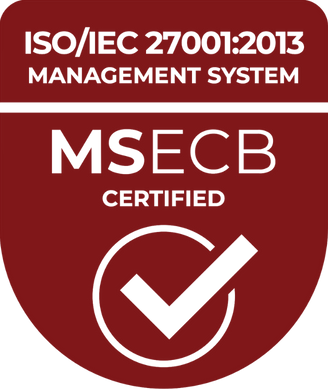8 Crucial KPIs for Consultant Companies
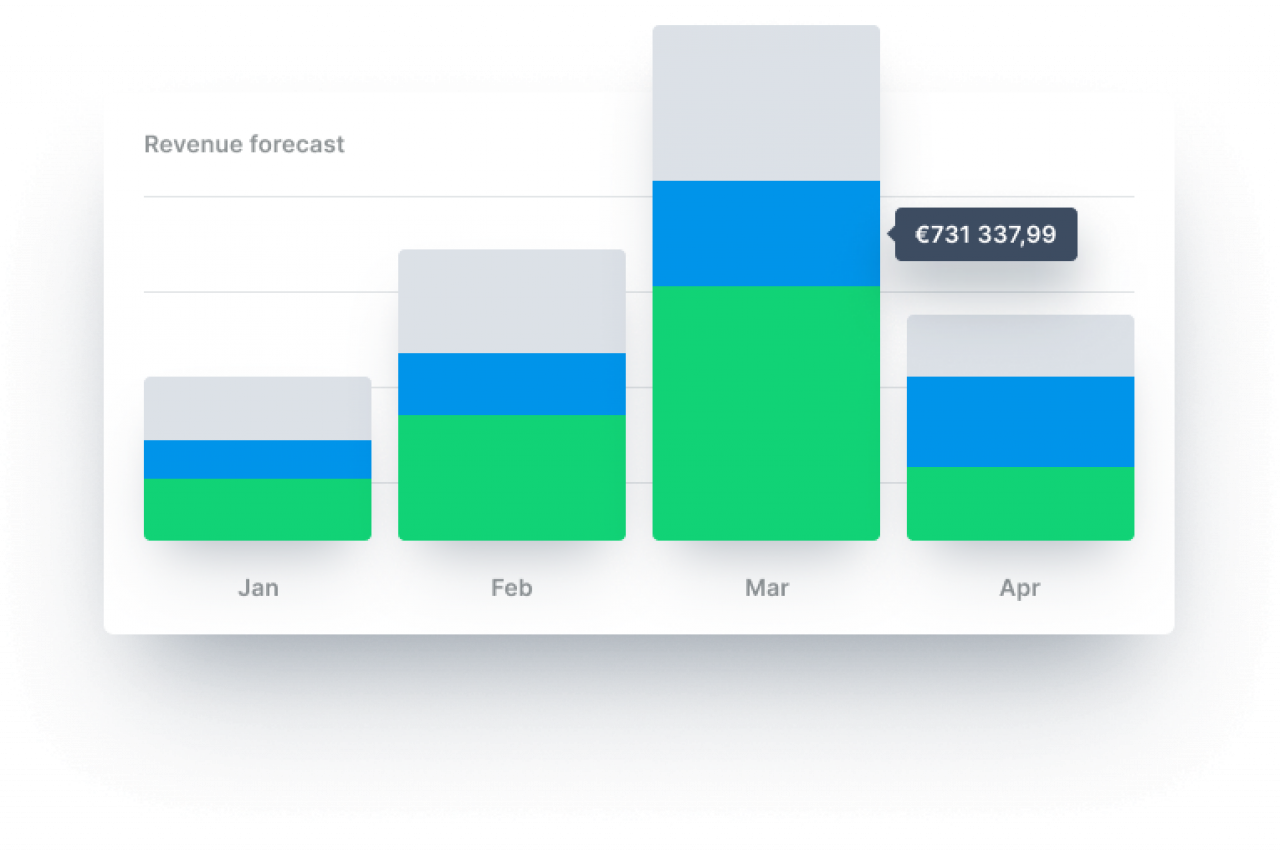
If you are running your own consultant company or if you are thinking about starting one it is important to track and follow up on crucial key performance indicators (KPIs). These KPIs provide you with immediate feedback on how your company is doing and can identify the areas you should be focusing on.
1. Utilization Level
One of the most important KPIs in a consultant company is the level at which you use your resources. This KPI tells us the total number of charged working hours by dividing charged hours with the total number of hours. You can measure utilization levels in different areas; for the entire company, per team, for specific skills areas and all the way down to the individual.
Apart from measuring your current utilization levels, you should also estimate future utilization. Something you should know by heart is how low utilization your company can take without losing money.
An associated KPI you should track is the amount of days a consultant is “on the side-lines” before the employee is on assignment again. If there are too many days between assignments you might need to take action.
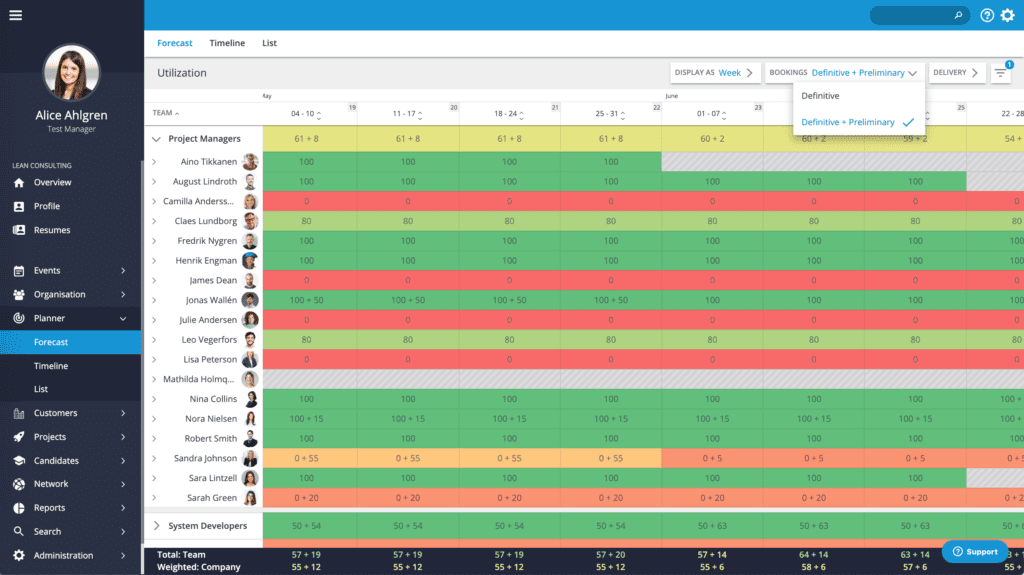
2. Average Hourly Rate
Consultant companies must decide on a price strategy. Is it more important to get high value assignments or is it more important to keep utilization levels high? In either case, you need to keep track of your average hourly rate. If you charge a fixed rate it is even more important to make sure that you make money on your projects and that your average hourly rate is at an acceptable level.
Hourly rate for new assignments
You should be thinking about the future in terms of hourly rate as well. How is your rate progression doing? Is it possible to charge more for new assignments, or is the competition fiercer leading to a lower hourly rate?
3. Margin
Margin measurements can be divided into several parts. For instance, you should track your gross margin for your consultants, meaning the consultants’ hourly rate / hourly wage. If your consultants demand higher wages each year while the prices for their services aren’t increasing at the same rate, your company will have a difficult time making money, leading to you having to cut down in other areas.
However, among your company costs you also have to track administration, sales, facilities, training etc. That is why you should also track net margin, meaning profits/costs, preferably also on an individual level or even better, on an hourly level; hourly rate / cost per chargeable hour. Cost per chargeable hour = total costs for the company/number of chargeable hours.
If you keep track of your net margin you can effortlessly see how changed prices, salaries, utilization levels, and overhead costs will influence your business.
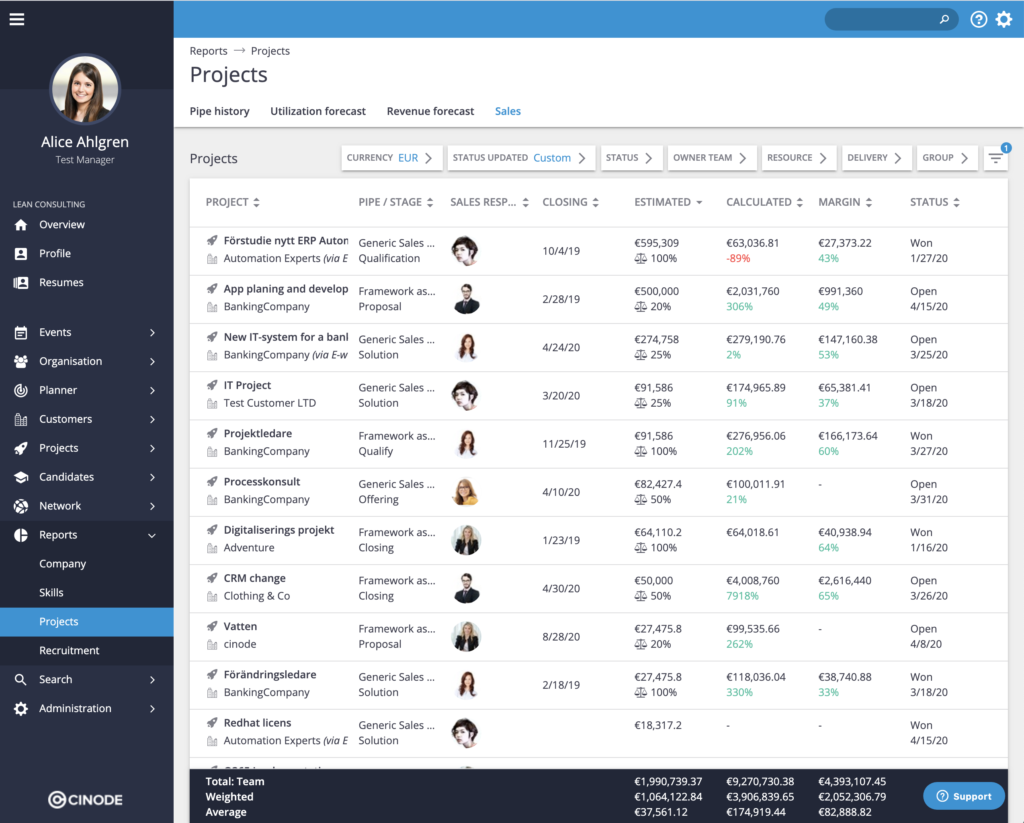
4. Client Satisfaction
Client satisfaction is an important indicator that can help the consultant company with measuring risks for client dropout. The happier your clients are, the greater the chance for longer collaborations. By frequently having a dialogue with your clients, you can also identify areas for improvement.
You can measure client satisfaction in many ways. You can use traditional surveys and/or track the rate of returning clients and the number of your new clients that are a result of referrals.
5. Getting New Clients
Even if your old clients are happy with your work, you still need a continuous influx of new clients to be able to grow and diversify your risks. You should keep track of your entire sales funnel and the following KPIs;
– leads
How many leads do you generate each month? This can also be sorted in various categories, for example leads from consultants, cold calling, website, and referrals.
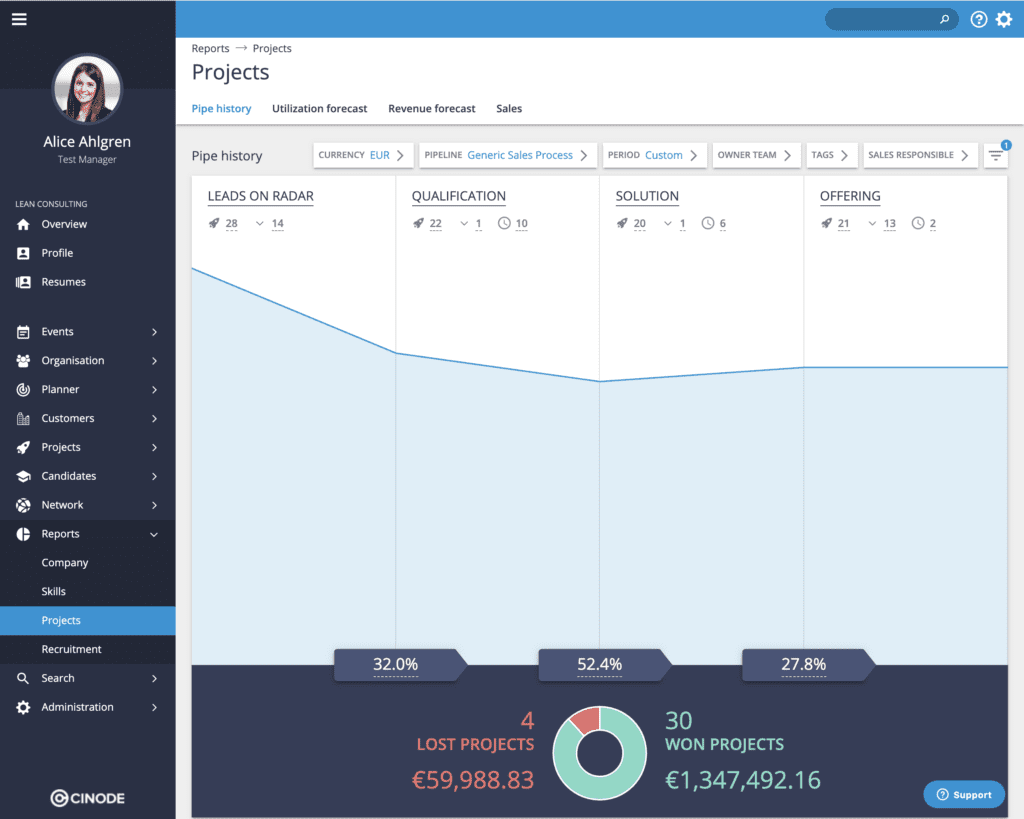
– offers
The number of offers you send, and the combined offer value. Remember to keep track of the number of leads that results in an offer. This enables you to measure how hot your leads are.
– contracts
The number of signed consultant contracts, but also the size/scope of the contracts are important KPIs. Also keep track of conversion levels from offer to contract to simplify future predictions. If you continuously analyse why you are not getting picked for an assignment, you have a solid foundation for improving your conversion levels.
If you use Front-End services/products, these are of course also important KPIs, both in terms of how many of your new clients are purchasing these products but also how many of these customers go on to sign a contract. Front-End services are for example education material, reports, analyses, workshops, audits etc.
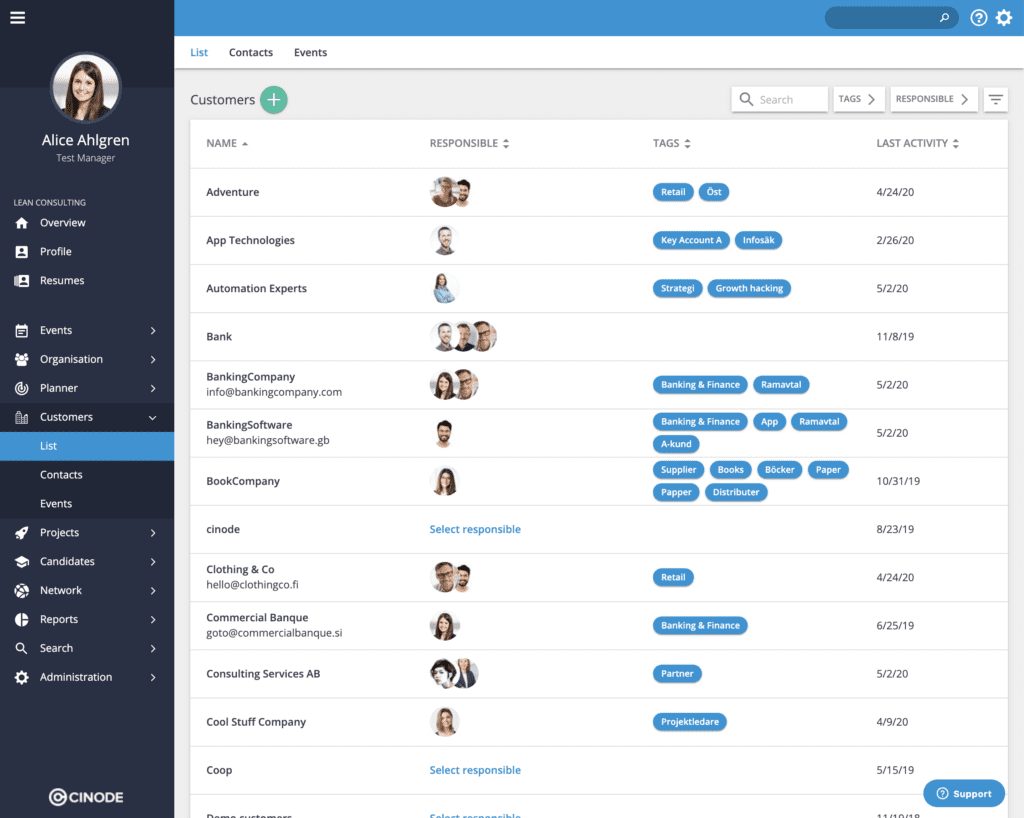
6. Assignment and Skills Allocation
Different industries have different cycles. If you are running a consultant company you should never put all your eggs in one basket. Diversifying over various clients and industries reduces the risk for your company.
Measure your revenue allocation in percent by;
– industry
How many of your assignments are in telecom, banking, manufacturing etc.?
– how much of your revenue is from your biggest clients?
If you are a smaller company, you should ask yourself how much of your revenue your three largest clients are responsible for. What happens if you are dropped by one of these clients?
– skills areas (for example project managers, java developers, and testers)
How is your assignment allocation in terms of skills and roles? Do you have the right expertise and what happens if your most important skill is no longer in demand as much as previously?
7. Recruitment Levels
To be able to plan sales, decide expected utilization levels, and make sure your company is growing, you need to keep a firm eye on recruitment. Just like in sales, the entire recruitment process should be measured;
– number of incoming applications
Can also be broken down to how many that make it to the interview stage and how long the process takes.
– number of new recruits
How many new employees do you hire each month/quarter?
– how many quit?
When measuring a specific period, you should of course also track the number of your employees that quit and why they quit
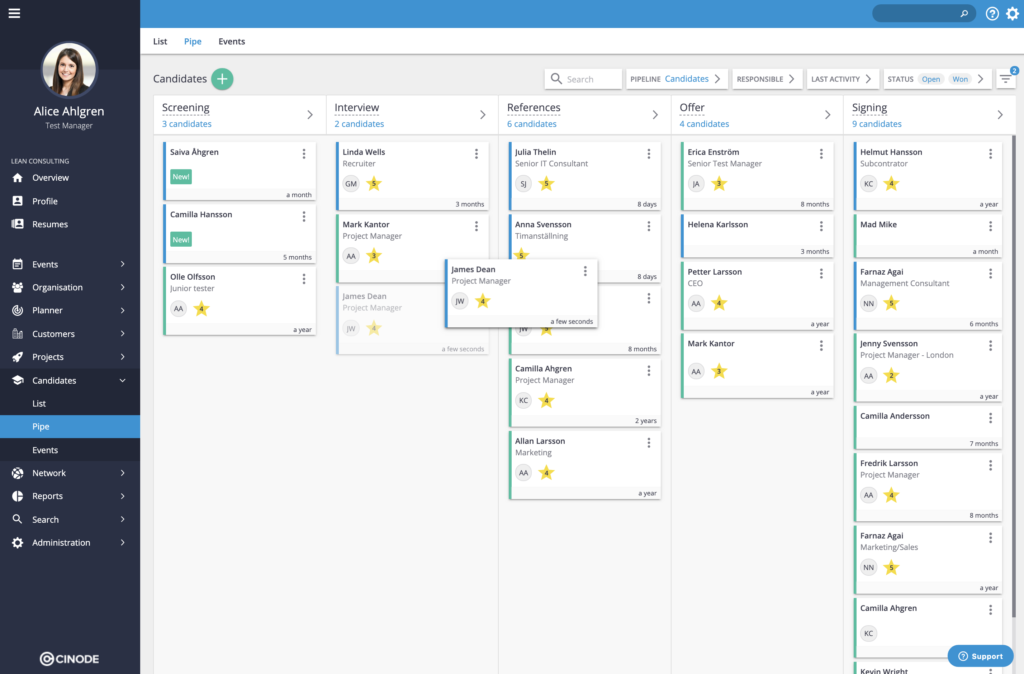
Keep track of your entire recruitment process in Cinode.
8. Employees
When the value of your company leaves at 5 pm it is crucial that they return the following day. Your employees are your most important asset when you are running a consultant company.
– employee engagement/satisfaction
Engagement in a consultant company is the key to success. However, do not fall into the trap where you only perform an annual employee survey. There are better methods for measuring employee satisfaction, for example weekly and monthly feedback. Implement monthly retrospectives where actions for improvement are made clear and where they can be followed up on continuously. When you involve your consultants, you get dedicated employees.
– skills
You should also keep track of the total number of skills among your employees. You do this in part to be able to decide on training efforts and skills exchange, but also to measure how your current skills are appropriate for new assignments. Skills inventory is also used in recruitment.
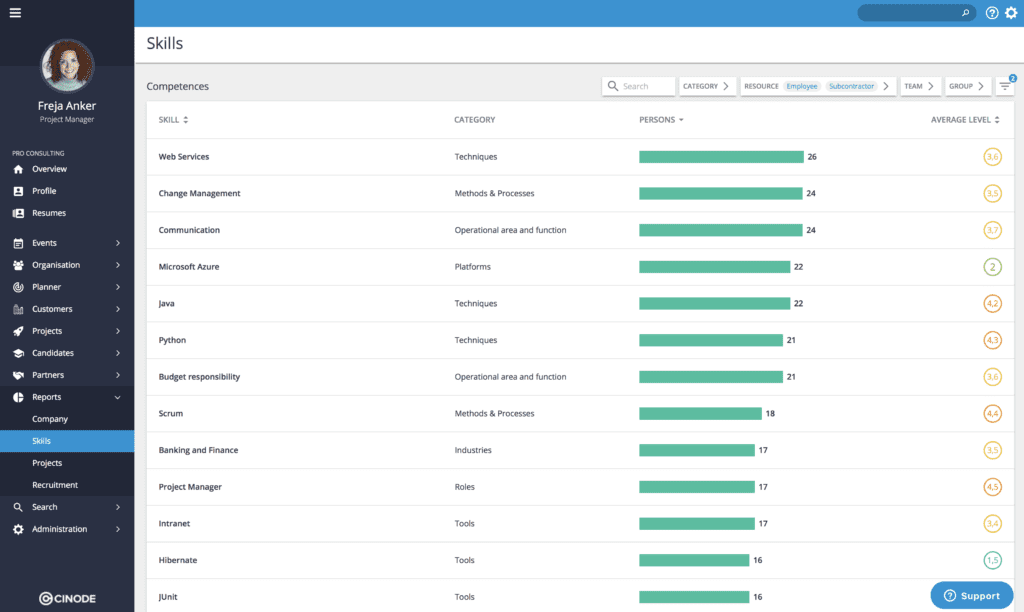
Get started with Cinode Free
With Cinode Free, importing your skills and experience into a structured, searchable CV takes just a few moments. Customize your CV using our templates and easily share it with potential clients online.
Join our network and discover new partners and assignments while showcasing your skills and expertise.

Free. Create CVs and Connect to a World of Skills!

Mattias Loxi - cofounder of Cinode. Marketing/Sales.
Mattias Loxi - cofounder of Cinode. Marketing/Sales.
You may also like...
All posts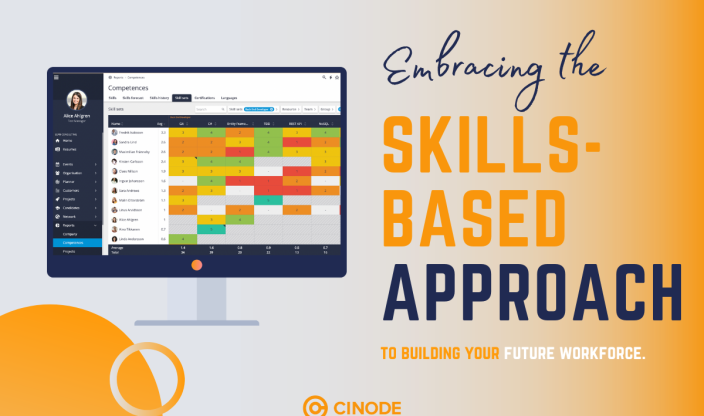
Apr 20 2023 · Consulting, Sales, Skills Management
How do you work more skills-based within your company?

Mar 23 2023 · Consulting, Sales, Skills Management
“If you sell competence, you always need to be on top of how you develop your skill set”

Feb 17 2022 · Consultant resumes, Consulting, Sales
Higher efficiency and utilization rate, and increased profitability

Sep 10 2019 · Cinode, Consultant resumes, Consulting, Sales
“There will always be a need to find the right resource extremely fast”

May 02 2019 · Entrepreneurship, Sales
Why growth and scalability are fundamental to consulting companies

Mar 27 2019 · Consulting, Entrepreneurship, Sales
Think 4 x Bigger and Grow your Consultancy Business

Jan 31 2019 · Consulting, Entrepreneurship, Marketing strategy, Sales, Video
How to climb the value chain as a consulting business

Nov 20 2018 · Consulting, Entrepreneurship, Sales
Compensation Models in Consulting Firms

Jun 08 2018 · Sales
